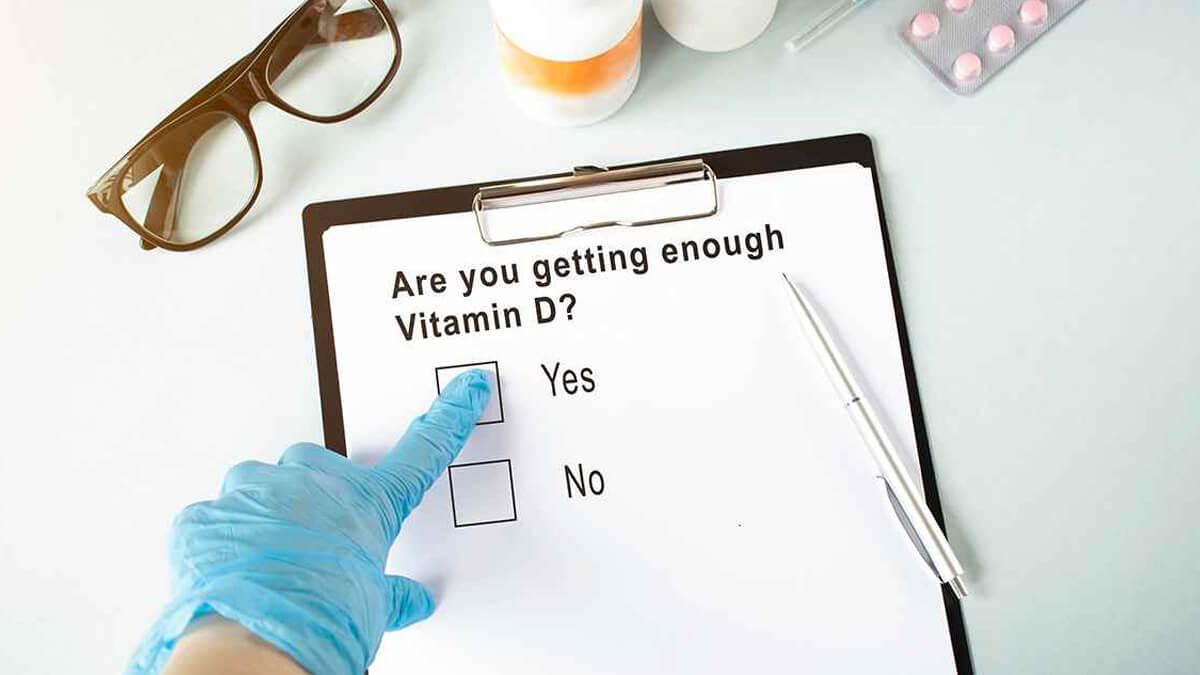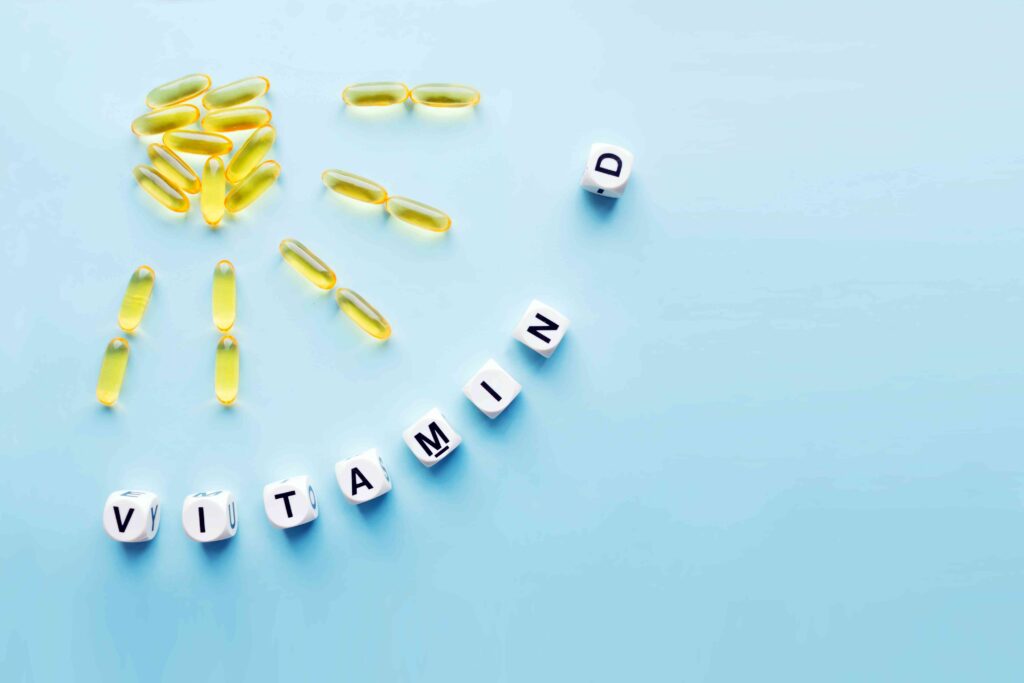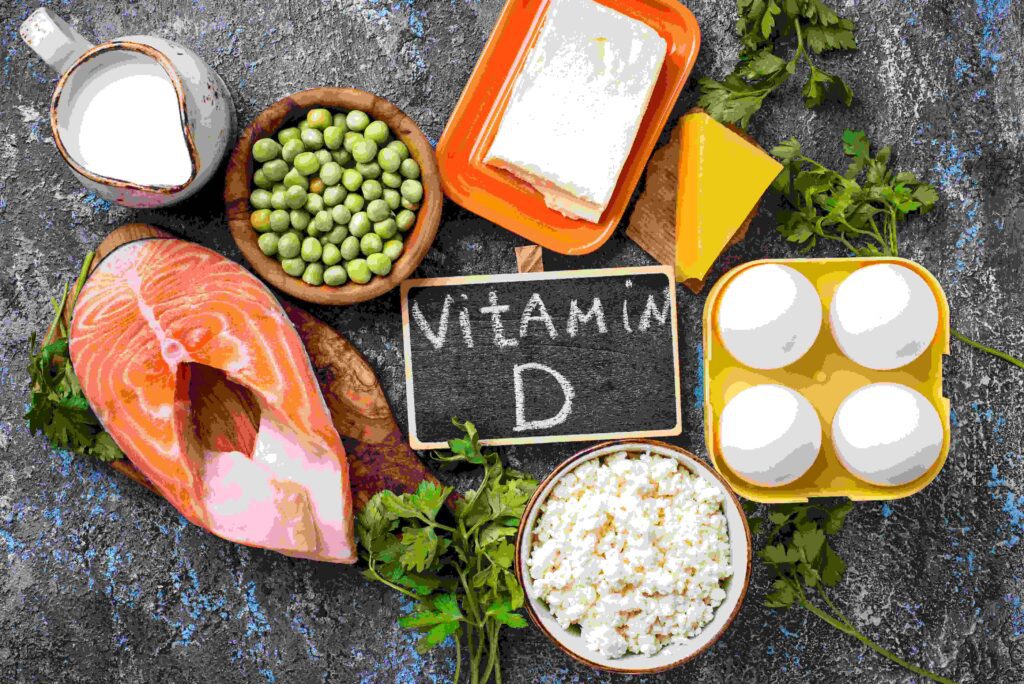
14 Common Signs and Symptoms of Vitamin D Deficiency to Look Out For
Summary
Vitamin D, which is also known as the sunshine vitamin, plays a significant role in numerous functions of your body. For example, it is responsible for keeping your bones healthy by improving the body’s calcium absorption, maintaining strong immunity and improving muscle function. However, Vitamin D deficiency is quite common among people, which hinders health and leads to various problems. That’s why it is important to be aware of the signs and symptoms of Vitamin D, and how to increase your daily intake of the same.
Index
| 1. About Vitamin D deficiency |
| 2. Causes of Vitamin D deficiency |
| 3. 14 signs of Vitamin D deficiency |
| 4. Can Vitamin D supplements cause thyroid problems? |
| 5. Can low levels of Vitamin D make you feel achy? |
| 6. Treatment for Vitamin D deficiency |
| 7. Foods that contain Vitamin D |
| 8. Conclusion |
| 9. Product Mentioned in this blog |
About Vitamin D Deficiency

Vitamin D is essential for your overall well-being
Vitamin D is a crucial nutrient that plays a vital role in your overall health. With Vitamin D deficiency, you will face challenges in maintaining healthy bones, teeth, muscles, or your immunity. Vitamin D is often called the “sunshine vitamin” because our skin produces it when exposed to sunlight. However, many people may not get enough Vitamin D through sunlight exposure, and hence, diet, supplements, become necessary to deal with Vitamin D deficiency.
Causes of Vitamin D Deficiency
There are several factors that can contribute to Vitamin D deficiency. While you won’t be able to manage them all, you can certainly take steps to balance a few of them. Below mentioned are the most prominent causes of Vitamin D deficiency.
Certain skin health conditions such as psoriasis can lead you to Vitamin D deficiency. They limit your skin’s ability to absorb Vitamin D from natural sources, such as the sun.
As we age, our skin becomes less efficient at producing vitamin D, and our kidneys may become less efficient at converting vitamin D into its active form. This is one of the most common causes of Vitamin D deficiency.
Vitamin D is fat-soluble, meaning that it is stored in fat cells. People with a higher body fat percentage may require more vitamin D to maintain their good health.
Vitamin D is often called the “sunshine vitamin” because our skin produces the same when exposed to sunlight. However, people who live in areas with limited exposure to sunlight or who spend most of their time indoors may not get enough of it.
Some medical conditions, such as Crohn’s disease and celiac disease, can interfere with the absorption of vitamin D and give rise to health problems.
14 Signs of Vitamin D Deficiency

Early morning walks are a reliable source of Vitamin D
1. Fatigue
Feeling excessively tired or lacking energy is a common indication of Vitamin D deficiency.
2. Bone Pain
Low levels of vitamin D can cause bone pain, often felt in the legs, pelvis, and lower back.
3. Muscle Weakness
This is one of the most common symptoms and signs of Vitamin D deficiency. A lack of it can cause weakness and aching in the muscles.
4. Depression
Studies have shown a link between vitamin D deficiency and depression, with low levels of vitamin D potentially contributing to mood disorders.
5. Impaired Wound Healing
Vitamin D is essential for skin health and wound healing. A deficiency may slow down the healing process.
6. Hair Loss
In severe cases of vitamin D deficiency, hair loss can occur.
7. Respiratory Infections
Low vitamin D levels have been associated with an increased risk of respiratory infections, such as cold and flu.
8. Slow Healing of Fractures
Vitamin D is essential for bone health and for fracture healing. Its deficiency may slow down the healing process.
9. Chronic Pain
Vitamin D deficiency may contribute to chronic pain conditions, such as fibromyalgia and chronic fatigue syndrome.
10. Cardiovascular Disease
Low vitamin D levels may increase the risk of cardiovascular disease, including heart attack and stroke. That’s why it is necessary for you to get Vitamin D through sun exposure, supplements, and meals. If you are looking for a Vitamin D supplement, you can look at the Diataal Vitamin D supplement.

Diataal-D is a dependable supplement which you can consume post your wholesome meals
11. High Blood Pressure
Vitamin D plays a role in regulating blood pressure, and its deficiency may contribute to high blood pressure by changing bodily chemicals that control blood pressure.
12. Type 2 Diabetes
Research published by American Diabetes Association Studies suggests a link between low vitamin D levels and an increased risk of type 2 diabetes.
13. Osteoporosis
Vitamin D is essential for maintaining good bone health. A deficiency can increase the risk of bone fractures and osteoporosis.
14. Cognitive Impairment
Low vitamin D levels might lead to an increased risk of cognitive impairment and dementia.
Can Vitamin D Supplements Cause Thyroid Problems?
While lack of Vitamin D has been linked to autoimmune thyroid diseases, there is no evidence that taking Vitamin D supplements can cause thyroid problems. However, it’s always advisable to consult a healthcare provider before starting the consumption of any supplement.
Can Low Levels of Vitamin D Make You Feel Achy?
Yes, studies suggest that Vitamin D deficiency can cause muscle weakness, joint pain, and bone pain. Vitamin D plays a crucial role in maintaining bone health and muscle function.
Treatment for Vitamin D Deficiency H2 Tag
Treatment for Vitamin D deficiency usually involves taking supplements, either oral or through an injection. The dosage and duration of the treatment depend on the severity of the deficiency and your health condition. Along with supplements, it’s also important to include Vitamin D-rich foods in the diet and ensure that you get adequate sunlight exposure. Make sure that you pick the best treatment for Vitamin D deficiency, the one that matches your lifestyle. We would suggest pairing our Diataal-D supplements with nutritious meals and an active lifestyle to see the difference.
Foods that Contain Vitamin D

It’s a good idea to include diverse sources of Vitamin D in your diet
| Food Source | Portion Size | Amount of Vitamin D |
| Fatty Fish (Salmon, Trout, Mackerel) | 3 oz | 112-200% |
| Cod Liver Oil | 1 tsp | 450% |
| Mushrooms (exposed to UV light) | 1 cup | 136% |
| Fortified Milk (whole, skim, or non-dairy) | 1 cup | 25% |
| Fortified Yogurt | 1 cup | 20% |
| Fortified Orange Juice | 1 cup | 25% |
| Fortified Cereal | 1 cup | 10-15% |
Conclusion
It is important for everyone to be aware of the symptoms and signs of Vitamin D deficiency . Based on the symptoms, you can decide what can be your solutions to treat the same. In case you are struggling with Vitamin D deficiency, make sure that you act appropriately to increase Vitamin D intake as soon as possible. The Diataal-D supplement can offer much-needed assistance. Check out the product on our page right away!



